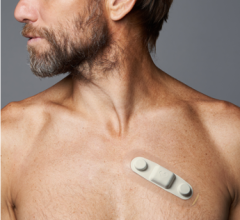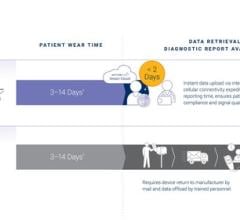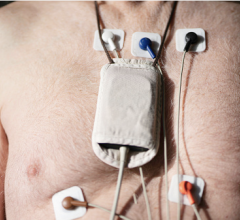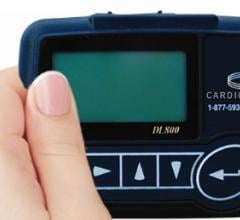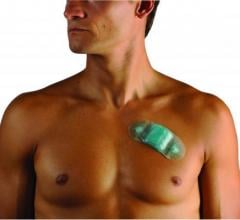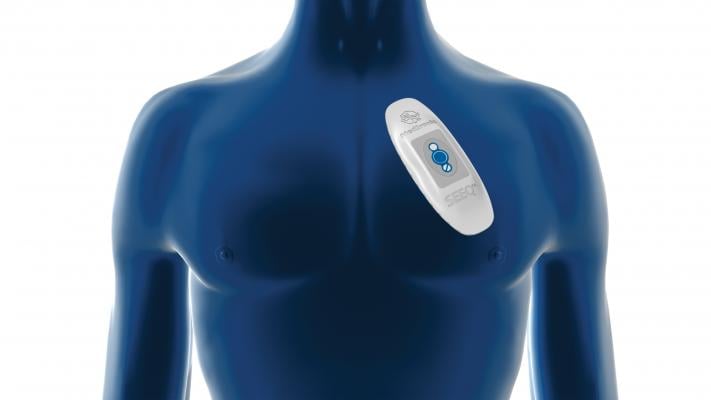
Medtronic Launches SEEQ Wearable Cardiac Monitoring System in United States
October 7, 2014 — Medtronic Inc. announced the U.S. launch of the SEEQ Mobile Cardiac Telemetry (MCT) System, an external, wire-free, adhesive heart monitor that can be worn for up to 30 days to help detect and diagnose the cause of irregular heartbeats in patients. Medtronic completed the acquisition of U.S.-based Corventis Inc., which developed the technology, in June 2014.
“The SEEQ MCT System allows us to get the critical arrhythmia recordings we need to make treatment decisions without being burdensome to patients,” said Ethan P. Levine, D.O, electrophysiologist and director of electrophysiology and arrhythmia services at Arnot Ogden Medical Center in Elmira, N.Y. “Wearing a bulky monitor for more than a couple of days can be a frustrating experience for patients. Because this device is an inconspicuous and easy-to-use adhesive patch, patients are more likely to wear it continuously, allowing for more consistent and comprehensive capturing of data, which enables physicians to make accurate diagnoses and timely treatment plans.”
Automatically activated when applied to the skin, the SEEQ MCT System includes a wearable sensor that monitors the heart continuously for up to 30 days. With a slim profile and no wires (about 15mm or 0.6 inches in depth), the adhesive sensor can be worn discreetly under clothing and is water-resistant so that patients can be monitored continuously while exercising, showering or sleeping.
The SEEQ MCT System remotely monitors every heartbeat and automatically sends important cardiac data to the Medtronic Monitoring Center (operated by Medtronic Monitoring Inc.), a dedicated data center that is staffed by certified cardiographic technicians who provide continuous, around-the-clock cardiac monitoring. While the SEEQ MCT System captures and transmits cardiac data automatically, a trigger button also allows patients to alert the monitoring center, should they have symptoms. Whichever way the trigger is activated, data are transmitted via Bluetooth and cellular connections to the Monitoring Center, which provides reports to prescribing physicians for review and analysis.
The SEEQ MCT System is indicated for patients who experience symptoms that suggest an irregular heartbeat such as syncope (fainting), lightheadedness, vertigo, palpitations or shortness of breath, and whose symptoms were not detected by a 24-hour Holter monitor.
While the SEEQ MCT System is prescribed for patients who may require up to 30 days of monitoring, earlier this year Medtronic introduced the Reveal LINQ Insertable Cardiac Monitoring (ICM) System, which can continuously monitor patients for up to three years. The Reveal LINQ ICM is designed for patients whose cardiac arrhythmias are less frequent and may not be detected by short-term monitoring systems.
“By adding a short-term cardiac monitor to complement our insertable long-term Reveal LINQ device, Medtronic is providing a comprehensive portfolio of diagnostic tools to help patients with different types of symptoms,” said Nina Goodheart, vice president and general manager of the diagnostics and monitoring business at Medtronic. “The SEEQ MCT System and Medtronic Monitoring Center give patients a simple, easy-to-use, short-term diagnostic solution while ensuring that important cardiac data are captured so that physicians can make timely and actionable diagnoses.”
For more information: www.MedtronicSEEQ.com

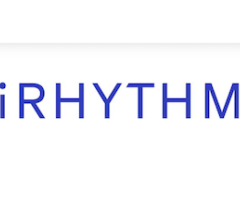
 March 31, 2025
March 31, 2025 
